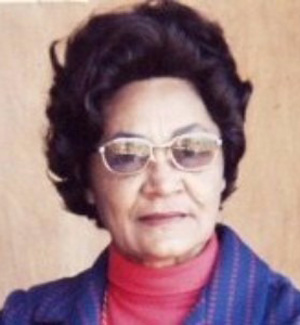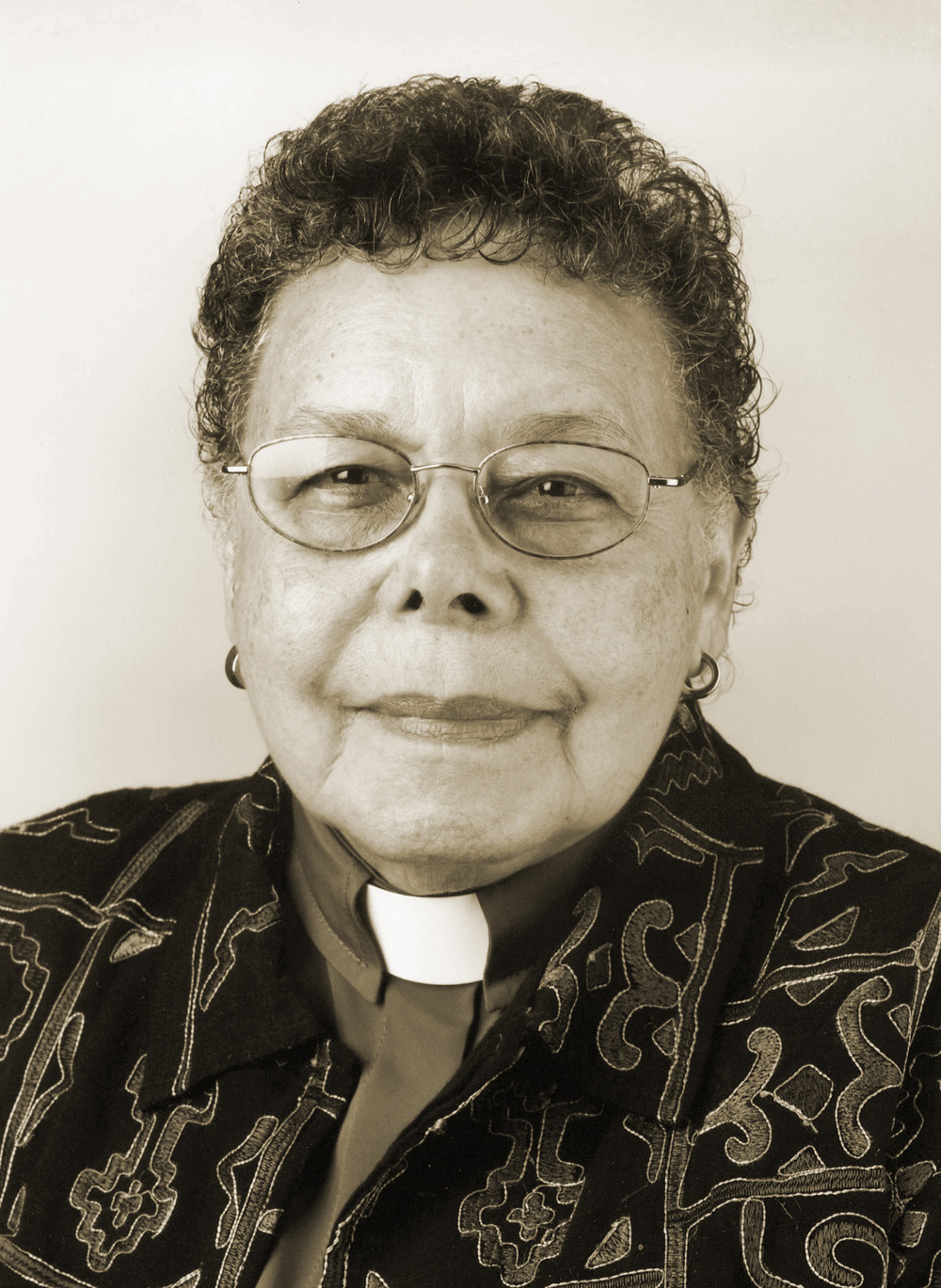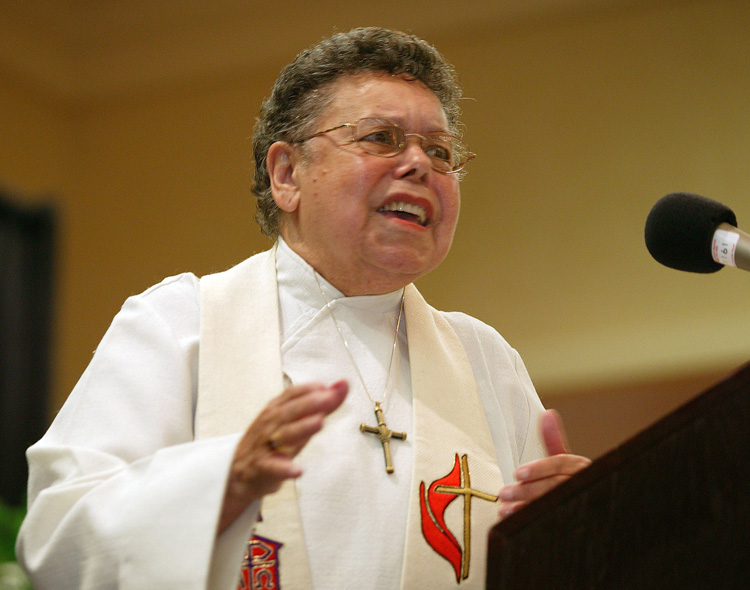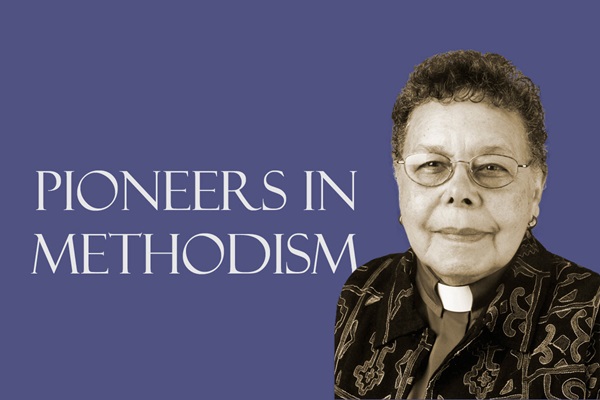Part 2 of a two-part series on pioneering Black women in Methodist history celebrates The Rev. Sallie Crenshaw and Bishop Leontine Kelly.
Part 1 of the series celebrates Ida Bell Wells-Barnett and Mary McLeod Bethune.

The Rev. Sallie A Crenshaw (1900-1986)
Sallie A Crenshaw was ahead of her time, serving as a missionary and pastor when ministry was limited for women, especially Black women.
She studied at several Methodist schools, including Gammon Theological Seminary and Clark College (now Clark Atlanta University), and was the first Black student to attend Tennessee Wesleyan College.
Learn more:
- Sallie A. Crenshaw (General Commission on Archives and History)
- Rev. Sallie Crenshaw was a woman ahead of her time (Chattanooga Times Free Press)
In the 1930s, she became a licensed preaching missionary, which allowed her to serve in ministry despite prohibitions against the ordination of women. She later became one of the first two Black women ordained in the Methodist Episcopal Church. In 1958, two years after The Methodist Church approved full clergy rights for women, she was one of the first two Black women to receive those rights as a full clergy member of the East Tennessee Conference in the racially segregated Central Jurisdiction. Crenshaw also is noted as one of the first Black clergywomen in the Holston Conference and the Southeastern Jurisdiction.
Crenshaw served as a missionary to Black coal miners in the Appalachian coalfields of Virginia and later pastored churches in poor neighborhoods in East Tennessee. She also is remembered for her mission work in the Chattanooga area, offering Bible studies, Sunday school classes and feeding programs for children. Seeing a need to care for children while their parents worked, she founded the Good Shepherd Fold daycare in Chattanooga in the late 1940s. The daycare became The Bethlehem Center and for a time was called The Sallie Crenshaw Bethlehem Center. The center, which celebrated its centennial in 2020, continues to serve the community and is a lasting legacy of her leadership in the region.

Bishop Leontine Turpeau Current Kelly (1920-2012)
Leontine Turpeau was born March 5, 1920 into family of Methodist leaders and baptized by Bishop Matthew Clair on the day of his election, the second African American to be elected bishop in Methodist Episcopal Church. Family members recall him saying at her baptism, "O, how I wish you were a boy so that my mantle might fall upon you." Sixty-four years later, it did.
Her father, the Rev. David Turpeau, was a Methodist pastor in the Northeast, a leading temperance advocate in Maryland, and member of the Ohio House of Representatives, serving four terms. Her mother, Ila Marshall Turpeau, was an outspoken advocate for women and Black people and was founder of the Urban League of Cincinnati. While in Cincinnati, they lived in a parsonage that had been a stop on the Underground Railroad. One of the many Methodist leaders who would occasionally visit the Turpeau home was Dr. Mary McLeod Bethune. She remembered being told by McLeod Bethune, “You must plan to be somebody.” Those words stuck.
For many years she believed she was fulfilling that plan by teaching. She completed the B.A. in education at Virginia Union University in 1956 and taught history and government in the only recently desegregated schools in Richmond, Virginia for the next 13 years.
Learn More
- Leontine Turpeau Current Kelly (General Commission on Archives and History)
- Bishop Kelly on Faith (video)
- Becoming a Teacher and Preacher (video)
- Being Called into the Ministry (video)
- Becoming a Bishop (video)
- Bishop Leontine Kelly dies at 92 (UM News)
- Leontine T.C. Kelly: National Visionary (National Visionary Leadership Project)
When her second husband, the Rev. David Kelly, died, the congregation her husband served asked for her to be their next pastor. At the time, she was a certified lay speaker and did not feel qualified or called to pastoral ministry. After some hesitation, she accepted their challenge, completing licensing school and beginning the Course of Study at Wesley Theological Seminary that same year. She went on to complete the Master of Divinity at Union Theological Seminary. Bishop Judith Craig said her decision "was gutsy. It speaks of her courage and conviction that God would make a way, that she would do it."
She was ordained in the Virginia Conference as a deacon in 1972 and an elder in 1977. Shortly thereafter, she was appointed as the Associate Program Council Director of the Virginia Conference, and, beginning in 1983, director of the evangelism division of the General Board of Discipleship.
The first female bishop of The United Methodist Church, Margaret Swank Matthews, was elected in 1980 but required to retire in 1984, leaving open the possibility of no female bishops in the denomination after 1984. Rev. Leontine T.C. Kelly put her name forward in the Southeastern Jurisdiction, endorsed by many clergywomen, though not by her annual conference. When early voting results made clear she could not be elected in the Southeastern Jurisdiction, the Western Jurisdiction called her for an interview and subsequently elected her, making her the second female bishop in the history of The United Methodist Church, and the first African American female bishop of any major denomination in the world.
Bishop Craig called her election “a huge breakthrough.” "The West had the wisdom to elect her (bishop), thank goodness. It was historic. It broke all precedent, which was wonderful. What a gift."
Assigned to the San Francisco Episcopal Area (California-Nevada Conference), Bishop Kelly’s influence would reach across the globe, as she was a founding member of the Africa Initiative, which in 1988 established Africa University, the first United Methodist university on the African continent.
Her lasting influence on all of those around her cannot be underestimated. Retired Bishop Sharon Brown Christopher put it this way: "Bishop Leontine Kelly has been the spiritual mother of many clergywomen and especially the women bishops. She called us into futures we never anticipated for ourselves, would not let us capitulate to our insecurities and druthers, and coaxed us into new lives that gave new leadership to The United Methodist Church. Her feisty, God-centered spirit is embedded deeply in our souls and will continue to form and instruct us."
Bishop Kelly died at age 92 on June 28, 2012. She lived a life of firsts as a teacher, mentor to women and girls, and outspoken critic of social injustices, especially racism and sexism. We remember and honor her courage to follow God past barriers and so making a way for others to follow.

This content was produced by Vicki Wallace and The Rev. Taylor W Burton Edwards with Ask The UMC, United Methodist Information Service.





